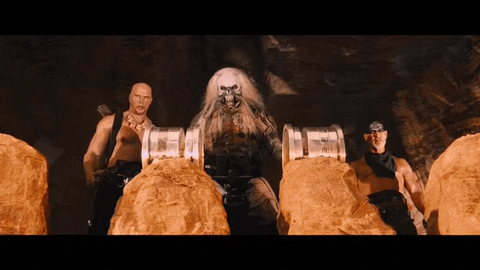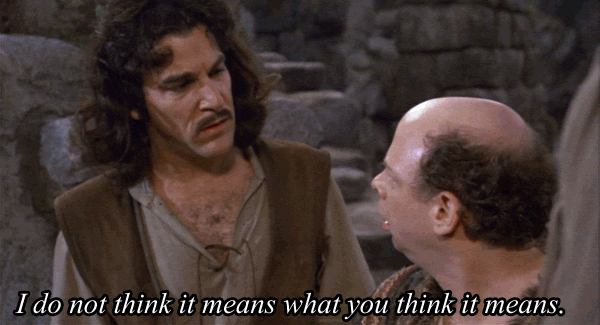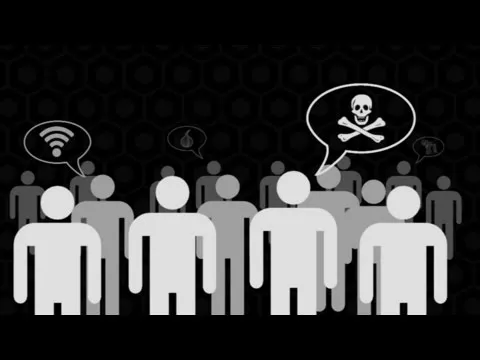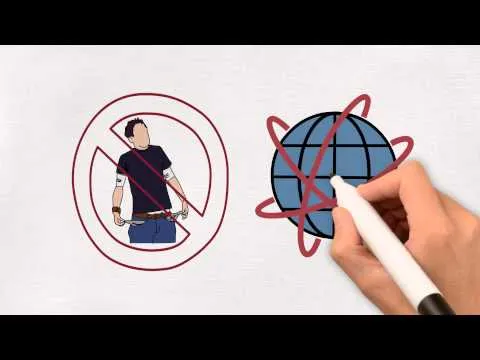Let me be the first to say it, assuming no one else has already...
"The world has officially taken the internet for granted."
To a degree, that's a good thing. The grand prophecies of a connected world from decades past where appliances become smart, where we all have computers in our pockets, and of A.I. dominating our world have all more or less come true and (yawn) . . . give me a sec . . . I'm just finishing up streaming the last episode of Stranger Things 2 and I need to turn off the lights by literally talking to the artificial intelligence built into my cheap smartphone.
We should recognize how fortunate we are that we live in times where all this amazing technology is so cheap, getting cheaper everyday, and is so ubiquitous that even the ultra-poor have access to it.
We're so awash in technology and we've had it for just long enough a time period that some people are beginning to suspect (incorrectly) that it's now an essential building block of life itself. To understand what I'm referring check out (or don't) any alarmist NYT, Salon, Buzzfeed, or Arstechnica article about the impending repeal of Net Neutrality and you'd think the FCC was about to implement water rationing.
Coincidentally, here's some actual file footage I found of the internet pre-Net Neutrality:

:sigh: My eyes are sore from all the reflexive eye-rolling I've done lately.
Let's get to it then...
1) Government's have no business regulating the internet
So you say the government should regulate the internet to keep it free from those meddling hands that would charge you more.
Ow! My eyes rolled. Sorry, about that.
Regulation is a form of monopoly creation. It somehow allows government to justify acting as ruler over some means of production. Government gets to pick winners and losers based on some arbitrary criteria. They justify their "control" by saying emotionally charged things like, "controlling price is the only way to keep the internet accessible to all people". And I'm over here hearing that as "using government violence against non-compliers of arbitrary regulation is the only way to make the internet accessible." But I digress.
When government gets their hands on a market, they tend to claim sole "right" to write the rules and decide who gets to play and who doesn't. Those who are chosen, get special treatment in the form of subsidies, special rules which wipe out their competition, and so much more. Look at the oil & gas industry. There are only giant corporations. Look at the pharmaceutical industry. There are only giant corporations. Same thing with airlines and the railroad sectors. No start-ups. No mom and pop businesses. No mid-sized companies. Just bloated government coddled corporations. And those are all extremely regulated sectors. AND... there's extremely little innovation there. Coincidence?
Technology is NOT completely regulated. Yes, there are giant corporations, but there are also tens of thousands of start-ups and mid-sized companies too. Anyone can start a new technology company. Almost no one can start a new oil & gas company.
By the way... the original definition of monopoly was: Government granted permission as sole provider of goods and/or services over a specified territory.
Net Neutrality seeks to regulate internet companies just like they do those other sectors and for similar reasons. So why would it be any different? Don't you find it strange that ISP's and internet provider's actually support the regulation of their business? You'd think they'd be absolutely against anything that threatens their profits... Net Neutrality actually guarantees it by eliminating their competition.
2) You're using the phrase "Open Internet" all wrong.

So much doublethink. I think it's become my full-time job to point it out.
Any system that is referred to as "open" refers to a system which has no coercive barriers; that anyone can voluntarily participate without coercive oversight. Think "Open Source". This means anyone (and I do mean anyone) can make use of any idea without needing the expressed permission of the person or persons who originated the idea.
One example is the software industry. There are "open source libraries" which allow anyone on, or off, the planet to modify, copy, and/or sell without the expressed permission of any person or organization that it may have originated. Click here to see an example license: MIT License.
Let me also clarify: when the word "open" is used, it does NOT refer to a socialistic utopia in which government takes the internet from the haves and somehow gives it to the have-nots. That is college freshmen level thinking... we're better than this.
Fundamentally, "open" really means open participation. Anyone or any entity can make use of an "open" system. This includes the ultra-wealthy, the giant corporations you hate so much, the government I hate so much, and literally everyone else without exclusion.
And the internet as it is and always has been... is already open. Anyone with an internet-ready device can access the internet for free at participating locations such as McDonald's, Barnes & Noble, Starbucks, etc or by voluntarily paying to connect to it through the provider of your choice. The internet is already so open that you can even begin using a meshnet to free yourself of ISP's altogether!
3) The Real Problem
Let's do a quick thought experiment:
Let's say I have piece of property that Comcast wants to put some internet infrastructure on and they're willing to pay me for it. They come to me, make me an offer, and I accept. After they install it I get a nice sum of money and the neighborhood gets access to the internet. Cool.
Now let's say there's something called Zoning. I have the same land and Comcast wants to put some internet infrastructure on it, but this time the local government says, "Not without our permission."
That's exactly the problem that Net Neutrality supporters don't even realize exists.
Here's the reason most towns don't have very many internet providers...
Nearly all local governments lay claim to all private land through this imaginary concept of "zoning". Ever wonder why the government says you can't build a restaurant and serve people out of your own home? It's through this magical idea of zoning that government says to you, "this arbitrary side of town is residential and this arbitrary side is for business"... said another way, "because we say so". And thus, internet providers go to a town and have to get permission from the local government just to find out where they can put their infrastructure. So the government gives them the guidelines and tells them if they want to do business there they then have to follow their arbitrary rules. This causes any internet provider that doesn't have the financial backing to comply with all those arbitrary rules to not make it to your town.
And once those giants are in your small town, they have every incentive to keep those rules in place to keep out any competition by making emotional pleas to convince you of the evils of those other money making corporations.
Keep in mind those giant corporations have NO power here. The local government does. At any point in time the local government could do the right thing and tell those corporations that they'll have to compete just like any other business.
Government zoning may be the scourge of an open, cheap internet but it's definitely the friend of monopolistic cartels.
If you want choice, if you truly want faster speeds and lower prices, then you have to force your local governments to end zoning laws. Net Neutrality simply gives control of the internet to the very government people who are already controlling how the internet gets to you in the first place.
Don't blame Comcast. Blame your city council for giving Comcast special treatment through zoning laws.
The Solutions...
There are some fantastic minds out there working diligently on solutions. All I can do is point you in that direction so you can see the futility of Government regulation of the internet.
MESHNET
This particular project no longer exists, but there are others out there. The video, however, serves as a great example of how the internet will eventually look like without Internet Service Providers.
ZERONET
The Decentralized Internet
A great article about the future of the internet...
https://www.dailydot.com/debug/decentralized-internet-future/
Decentralize all the things, my friends.

